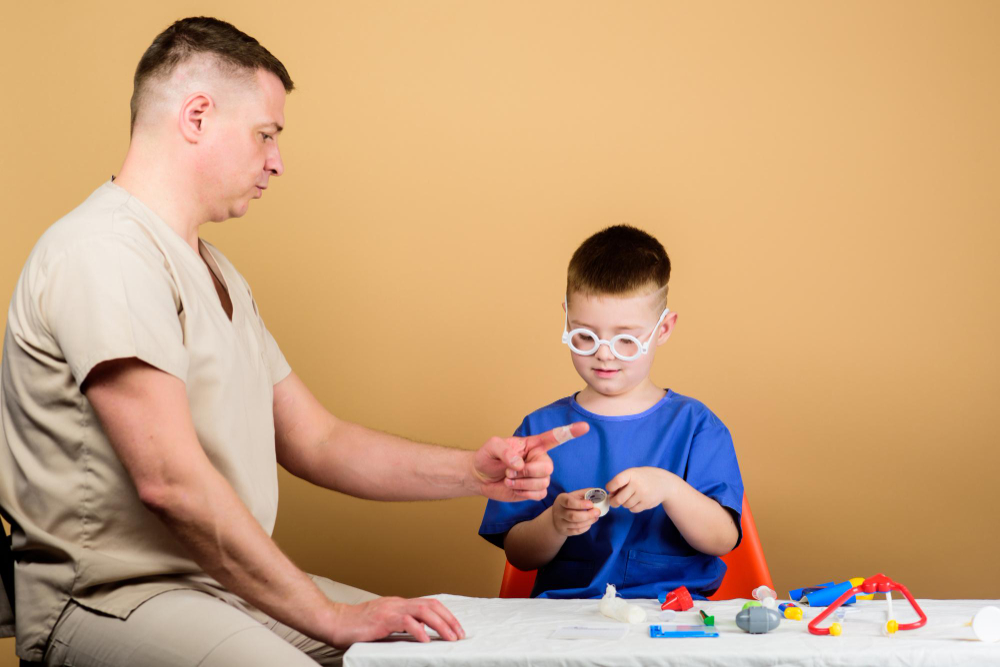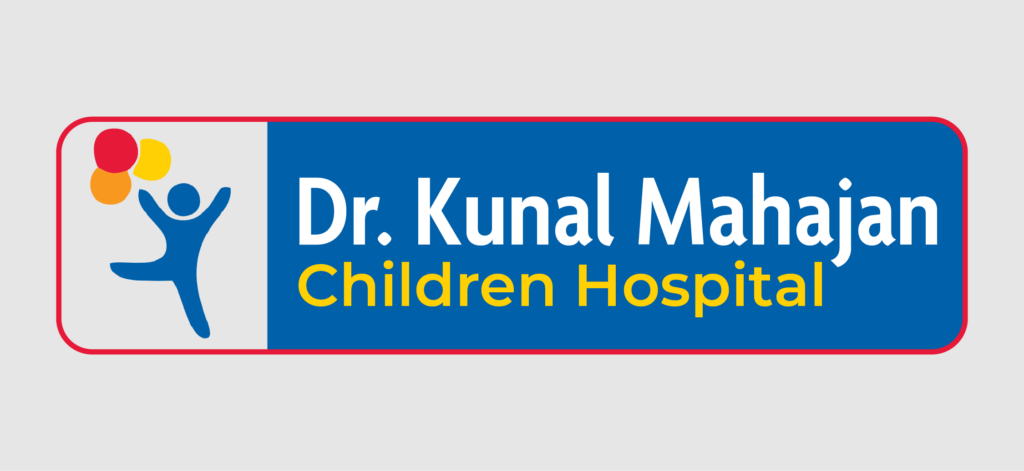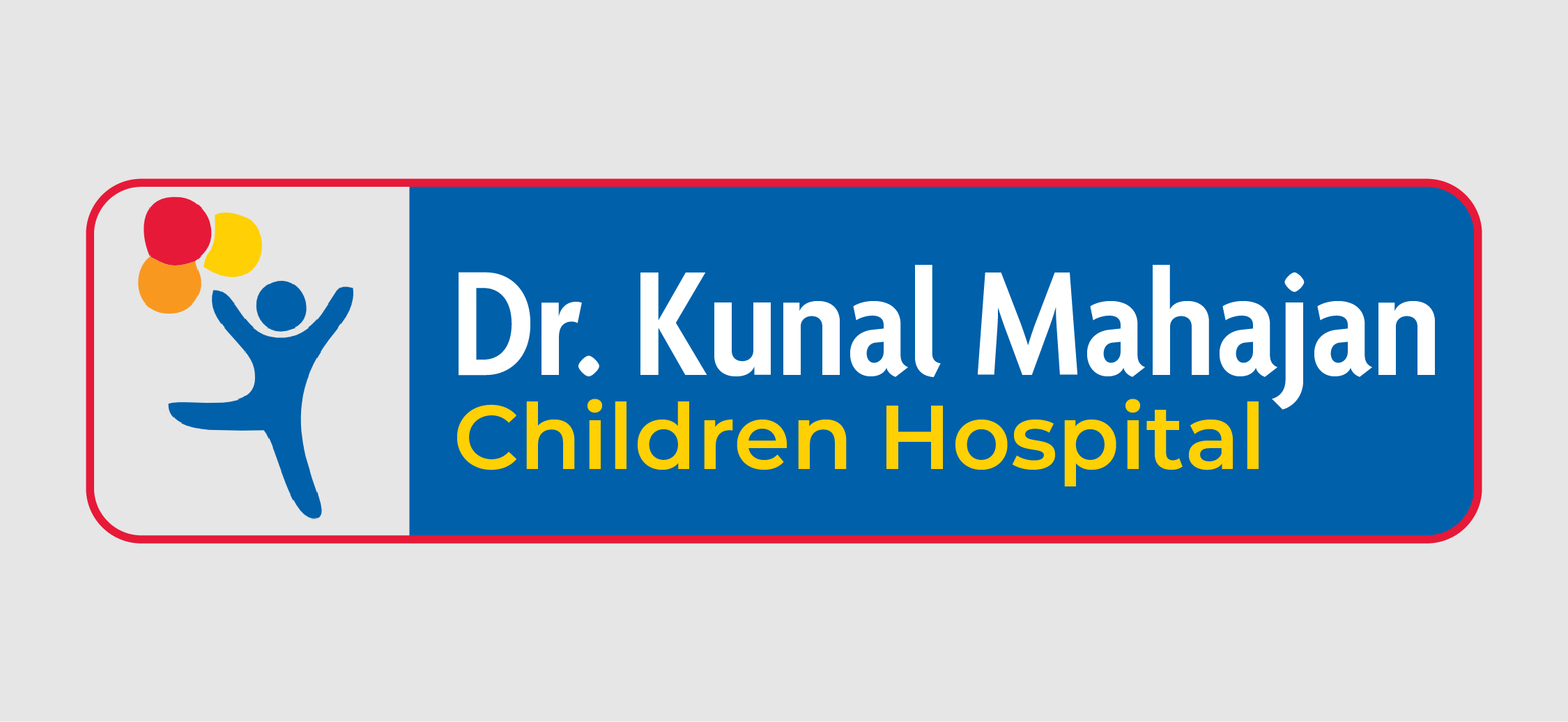Autism Spectrum Disorder

At Dr. Kunal Mahajan Children’s Hospital, we offer specialized services for the diagnosis, management, and treatment of Autism Spectrum Disorder (ASD) in children. ASD is a complex neurodevelopmental disorder characterized by challenges in social communication and interaction, as well as restricted interests and repetitive behaviors. Our dedicated team of pediatric specialists, including developmental pediatricians, child psychologists, speech therapists, and occupational therapists, is committed to providing comprehensive and compassionate care to support children with ASD and their families.
Diagnosis: Accurate diagnosis of ASD is essential for early intervention and effective management. Our experienced developmental pediatricians and child psychologists conduct thorough evaluations to assess children’s developmental milestones, social communication skills, and behavioral patterns. This may include clinical interviews, developmental assessments, standardized screening tools (e.g., M-CHAT), and observations of social interactions and play behaviors. Our goal is to provide a timely and accurate diagnosis that guides individualized treatment planning and support services.
Early Intervention: Early intervention is critical for optimizing outcomes and promoting development in children with ASD. Our hospital offers a range of early intervention services tailored to meet the unique needs of each child and family. This may include speech therapy, occupational therapy, behavioral therapy, and social skills training to address specific areas of difficulty, such as communication, sensory processing, emotional regulation, and social interaction. Our team collaborates closely with families to develop personalized intervention plans that support children’s growth and development from an early age.
Behavioral Therapy: Behavioral therapy, such as Applied Behavior Analysis (ABA), is a cornerstone of ASD treatment. Our behavioral therapists work with children and their families to target specific behaviors, teach new skills, and promote adaptive behaviors that enhance functioning and independence. ABA therapy may address communication deficits, social skills development, behavior management, and daily living skills to improve quality of life and facilitate participation in home, school, and community settings.
Speech and Language Therapy: Many children with ASD experience challenges in speech and language development. Our speech therapists specialize in evaluating and treating communication disorders associated with ASD, including expressive and receptive language delays, pragmatic language difficulties, and speech sound disorders. Speech therapy interventions may include individual or group therapy sessions, augmentative and alternative communication (AAC) strategies, and support for verbal and nonverbal communication skills to enhance social interaction and functional communication abilities.
Occupational Therapy: Occupational therapy plays a vital role in addressing sensory processing issues, motor coordination difficulties, and self-regulation challenges in children with ASD. Our occupational therapists assess children’s sensory preferences, motor skills, and activities of daily living to develop customized intervention plans that promote independence, participation, and engagement in meaningful activities. Occupational therapy interventions may focus on sensory integration, fine motor skills development, self-care routines, and environmental adaptations to support children’s functioning and well-being.
Family Support and Education: We recognize the importance of providing support and resources to families of children with ASD. Our hospital offers family support services, parent education programs, and support groups to empower families, enhance coping skills, and strengthen parent-child relationships. We provide guidance on understanding ASD, navigating the healthcare system, accessing community resources, and advocating for their child’s needs. Our team strives to create a supportive and inclusive environment where families feel heard, respected, and empowered to support their child’s development and well-being.


